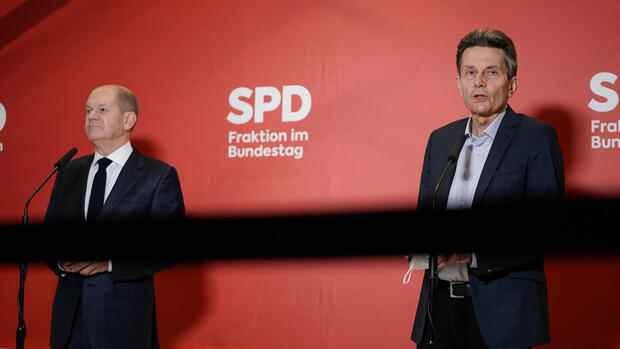“Friendly fire” is what ricochets from their own ranks call themselves. Federal Foreign Minister Annalena Baerbock repeatedly gets such a nuisance from the traffic light coalition, especially from its bright red part, which repeatedly sends a stop signal to changes in foreign policy.
SPD faction leader Rolf Mützenich demands more “diplomatic initiatives” from Germany’s top green diplomat. The SPD politician Ralf Stegner, who feels like sitting on all talk shows at the same time, and his constantly nagging colleague in the Bundestag, Berlin’s ex-mayor Michael Müller, who has been dumped by the capital’s SPD, assist with new caustic remarks about the head of the Foreign Office.
They do not reveal which diplomatic initiatives those who consider themselves to be the better foreign politicians would like to see. Rather, their exclamations are an expression of the SPD’s phantom pain at having lost the post of foreign minister – which was previously held by Willy Brandt, Frank-Walter Steinmeier, Sigmar Gabriel and finally a hapless and clueless Heiko Maas. They believe they are certain that they have leased the wisdom of foreign policy at least since Brandt’s Ostpolitik.
Not everything that SPD foreign politicians have achieved for Germany is by far wrong: without Brandt’s rapprochement with the East, there would have been no remotely prosperous coexistence during the Cold War. New markets opened up for the German economy. Helmut Schmidt sacrificed his government for the NATO double-track decision because his own party did not want to go along with Hamburg’s resolute course.
Top jobs of the day
Find the best jobs now and
be notified by email.
Olaf Scholz’ quick reaction with his “Zeitenwende” speech and the implementation of a 100 billion euro special fund to revive the slackened Bundeswehr only three days after Russia’s attack on Ukraine are certainly on the credit side of social democracy.
Mindless Baerbock bashing
Value-oriented foreign policy, as Baerbock now calls the green signature, cannot be denied by the SPD. But their value was too often a process: change through rapprochement.
The SPD has too often served itself to rulers in the East for their noble goal of a policy of detente. And opposition movements were betrayed or even denounced as a threat to stability – be it Poland’s independent trade union Solidarność, which struck the first free elections in the Eastern bloc, the GDR civil rights movement or Soviet and Russian dissidents.
This probably also explains the unbearable silence of SPD government representatives on the cries for freedom in Iran, the erroneously long clinging to the “dialogue” with Vladimir Putin, the blindness to an independent Ukraine and the longing for ever new attempts at talks with Beijing. Of course it is right to confront trigger-happy US New Conservatives. A George W. Bush, who prepared the invasion of Iraq with falsified “evidence” and thus triggered a conflagration in the Middle East that has not been extinguished to this day.
“As long as people are talking, they will not shoot” – this is Brandt’s conviction that still guides SPD politicians today. The regime in Tehran, with which a nuclear deal is still being negotiated today, has its opponents shot at home. And Putin had long since been preparing for a war of aggression while he allowed Western interlocutors like Scholz to sit down at tables in the Kremlin that were becoming absurdly longer.
Lack of courage
The hardliners, especially on the SPD left, lack the courage to admit failure, to let illusions go, and to return to the robustness of a Helmut Schmidt – a Realpolitiker and by no means warmongering.
The turning point in the mind has still not taken place for many social democrats. With Chancellor Scholz, party leader Lars Klingbeil and a few others. With their understandable desire to keep jobs and therefore want to conduct long-term dialogues with dictators, those who refuse to accept reality like that of Mützenich or Stegner overlook the fact that they have long been alone in the room. In doing so, they document that the SPD’s Russia problem has still not been solved.
No one is asking the SPD to immediately call to arms in every conflict. Conflict prevention, disarmament initiatives and diplomacy are honorable means – as long as there are at least signs of a willingness to engage in dialogue on the other side.
The Greens, who also come from the peace movement, have recognized this. They have now become real politicians. Baerbock’s feminist foreign policy, which relies heavily on moderation and mediation, breaks away more quickly from the illusion of still wanting to talk when others are already shooting. Arming Ukraine with weapons is the best example of this: weapons protect oppressed women (and men) there more than attempts to talk to a Putin who wants to destroy Ukraine.
The Greens have come of age in foreign policy faster than many expected. And faster than the social democrats, who are still clinging to illusions that have long since been disproved.
More: Putin’s audacity is stunning – the West must stick to these principles
